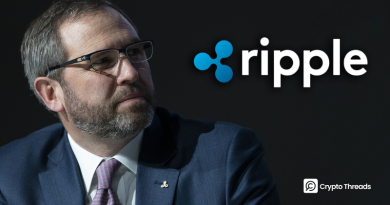US Senate Bill Seeks to Add Crypto to Mortgage Process
Meta description:
A new Senate bill could allow cryptocurrency to be counted in mortgage applications. The proposal targets younger buyers with digital assets but raises concerns about volatility and risk management.
Key Takeaways:
- The 21st Century Mortgage Act would require mortgage agencies to assess digital assets in home loan applications.
- Borrowers could use crypto holdings without converting them into cash.
- The bill is aimed at younger Americans with low homeownership rates and significant crypto exposure.
- Critics point to market volatility and liquidity concerns.
- A similar bill is progressing in the House, while Australia is piloting Bitcoin-backed mortgages.
Senate Bill Proposes Recognizing Crypto in Mortgage Applications
A newly introduced U.S. Senate bill could pave the way for digital assets like Bitcoin and Ethereum to be included in mortgage application assessments. Senator Cynthia Lummis has proposed the 21st Century Mortgage Act, which would formalize a June directive from the Federal Housing Finance Agency requiring mortgage purchasers such as Fannie Mae and Freddie Mac to consider cryptocurrency holdings when evaluating single-family home loans.
According to Lummis, the legislation is designed to reflect changing wealth patterns, particularly among younger Americans. Citing data from the U.S. Census Bureau, the senator pointed out that homeownership among individuals under 35 remains at just 36 percent as of the first quarter of 2025. The bill aims to support these younger demographics by allowing them to count their digital assets toward mortgage eligibility, without the need to convert those assets into fiat currency.
If enacted, the bill would give lenders greater flexibility in assessing borrowers with nontraditional financial profiles, especially those whose wealth is concentrated in crypto rather than savings accounts or traditional investment vehicles. The legislation frames this change as a step toward modernizing mortgage underwriting and expanding access to housing, particularly for those who have grown their net worth through decentralized finance and crypto investing.
Lawmakers Express Concerns as Global Crypto Mortgage Models Emerge
Despite the bill’s focus on innovation and inclusion, it has faced criticism from some lawmakers. In a letter sent on July 24, a group of Senate Democrats urged FHFA Director William Pulte to further evaluate the risks of incorporating digital assets into mortgage assessments. They expressed concern that crypto’s historical volatility and limited liquidity could leave borrowers vulnerable during market downturns, potentially increasing the risk of mortgage default if asset values drop sharply and cannot be quickly converted into cash.
The bill is part of a broader legislative effort to define the role of digital assets in the U.S. financial system. Senator Lummis is also co-sponsoring a separate proposal to establish a comprehensive framework for digital asset markets, while another bill that would prohibit the Federal Reserve from launching a central bank digital currency is currently under Senate review after passing the House of Representatives.
A parallel initiative is already underway in the House, where Representative Nancy Mace has introduced the American Homeowner Crypto Modernization Act. This bill would require mortgage lenders to consider the value of digital assets held in brokerage accounts on cryptocurrency exchanges during credit evaluations.
Outside the U.S., similar models are beginning to take shape. In July, Australian fintech company Block Earner announced plans to offer Bitcoin-backed mortgages following a court ruling that its crypto loan products do not fall under the country’s financial product regulations. This international development highlights the growing global interest in integrating digital assets into traditional financial services.
The debate surrounding crypto’s role in mortgage lending reflects broader questions about how to balance innovation with financial stability. While supporters view the legislation as a necessary adaptation to evolving forms of wealth, critics continue to emphasize the importance of managing risks associated with asset volatility and regulatory uncertainty.



